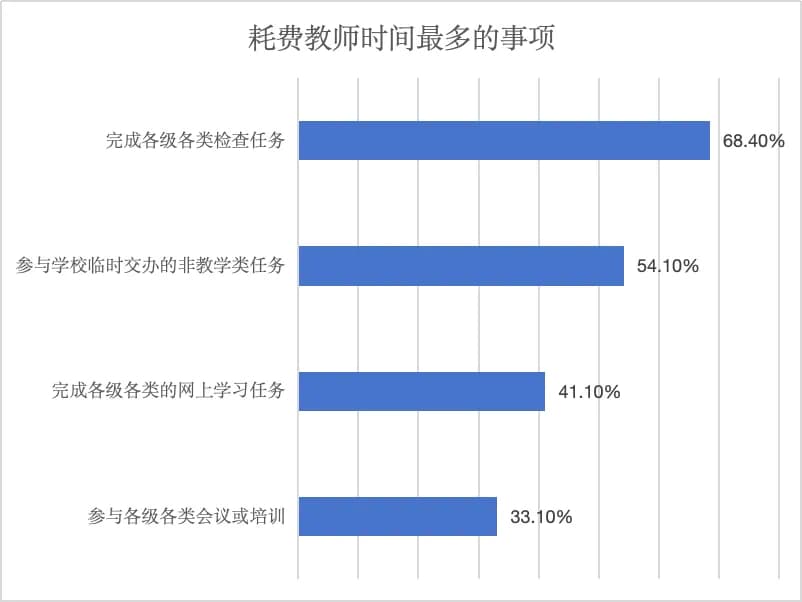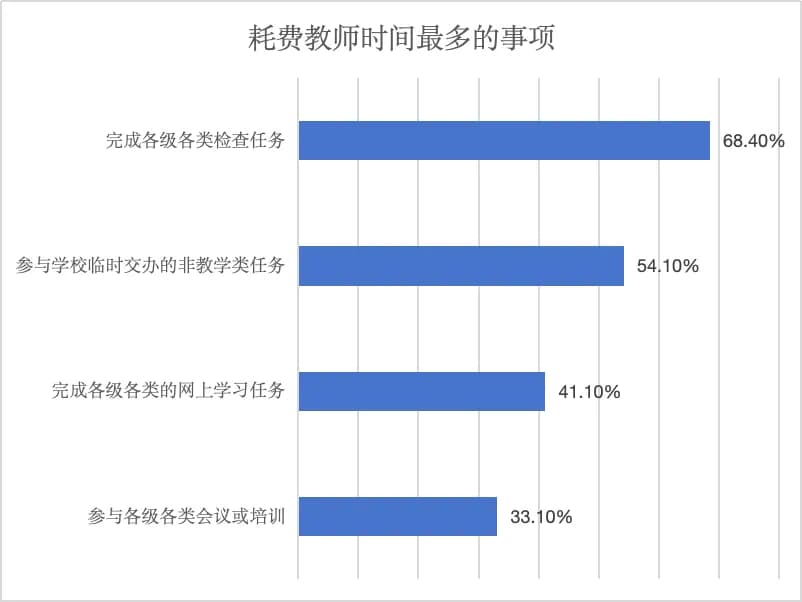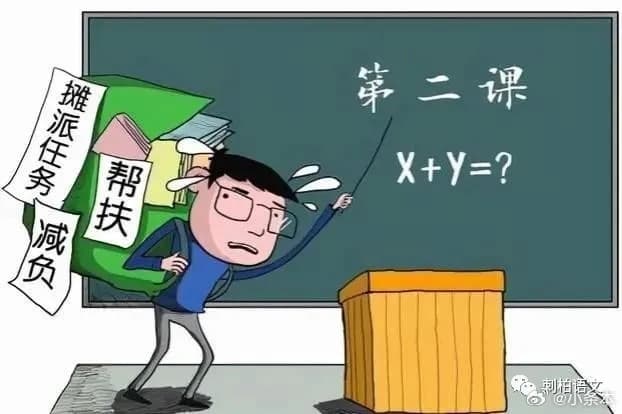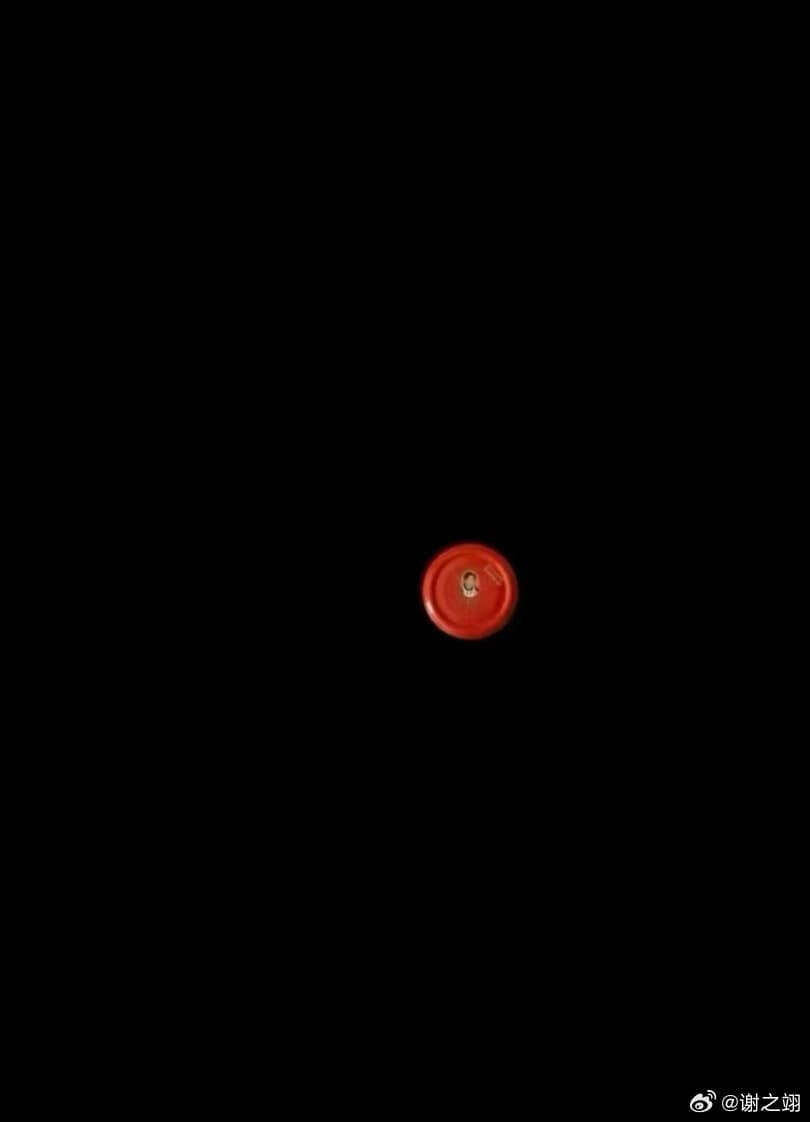The Unrelenting Burden: Why China's Teachers Are Shouldering More Non-Teaching Tasks Than Ever
A recent survey conducted by Li Zhenxi, an education researcher in Chengdu, has shed light on the growing burden of non-teaching tasks on primary and secondary school teachers in China. The study, which analyzed data from 6,653 teachers, found that 90% of their non-educational tasks were related to administrative and government-mandated duties, surpassing the time spent on parent-teacher communication.

18 October 2024
Li's research revealed that the most time-consuming tasks for teachers include completing various inspections and evaluations, participating in school-assigned non-teaching tasks, and completing online learning tasks. The survey also found that the majority of these tasks were not directly related to teaching or education.
According to Li, the non-teaching burdens of primary and secondary school teachers have not decreased, but rather increased, despite the government's efforts to reduce teachers' workload. In his surveys on the non-teaching burdens of frontline teachers conducted in 2017 and 2021, Li found that the "non-teaching tasks" assigned to teachers have become more numerous and time-consuming.

Li attributes this phenomenon to the proliferation of "formalism" in the education system, where teachers are required to complete tasks that are not essential to their teaching duties, such as submitting various reports, attending meetings, and participating in activities that have little to do with teaching. These tasks, although seemingly innocuous, consume a significant amount of teachers' time and energy, leaving them little time for actual teaching and lesson preparation.
In Li's view, the non-teaching tasks can be broken down into two categories: those that were completely unnecessary and those that were necessary but over-emphasized. The former includes tasks such as participating in school events, attending training sessions, and completing paperwork, which are geared towards meeting government requirements rather than improving teaching quality.
On the other hand, necessary tasks that were over-emphasized include writing lesson plans, participating in teacher training, and evaluating student performance. While these tasks may be important, they can become overwhelming when combined with the numerous administrative and non-teaching tasks.
Li notes that the evaluation system for teachers has become increasingly complex, with a multitude of indicators and metrics that have little to do with teaching quality. This has led to a situation where teachers are more focused on completing tasks that will improve their evaluation scores rather than on teaching and educating their students.
The root cause of the growing burden on teachers is the emphasis on quantifiable evaluation methods, which prioritize numerical scores over actual teaching quality. This has led to a culture of "formalism" in schools, where teachers are more focused on meeting administrative requirements than on providing quality education.
The entwinement of formalism and non-teaching tasks is a significant contributor to the increasing burden on teachers. "If the initial intention is to deal with inspections, complete indicators, take photos, and leave a trail, it's just a formality," Li explained. He argues that these tasks are not only unnecessary but also consume the precious time and energy of teachers. The lines between formalism and legitimate non-teaching tasks have become increasingly blurred, making it difficult to distinguish between the two.
Li's research revealed that non-educational social tasks and government department checks account for 90% of teachers' social affairs, exceeding the time spent on home-school communication. The tedious tasks mentioned by teachers include social learning, situation investigations, inspections, and unified requirements. While each task might seem justified on its own, collectively they drain teachers' energy and distract them from their primary responsibilities.
Furthermore, Li notes that some non-teaching tasks, such as participating in activities or completing tasks assigned by other departments, can have a hidden impact on teachers' evaluations. Failure to participate may result in deductions in job performance assessments, affecting their chances of promotion. The quantification of evaluations has also led to unintended consequences, where a class's excellence is measured by its achievements in various competitions and activities rather than its actual performance.
Li attributes the root of formalism to a broader societal issue, where the emphasis on achievement and competition has created a culture of emphasis on appearance over substance. He laments that the education system has lost sight of its primary goal: to provide a nurturing environment for students to learn and grow. By judging the legitimacy of a task based on whether it is necessary and whether teachers are doing it willingly or unwillingly, Li hopes to refocus the education system on its core mission.

The main reasons for the increasing teacher burden are the attenuation of educational management and the lack of boundaries between educational and non-educational tasks. Many tasks assigned to teachers, such as crime prevention, anti-drug campaigns, and environmental protection, may seem justified in isolation, but collectively, they consume a significant amount of teachers' time and energy. Moreover, these tasks often lack clear evaluation criteria, making it difficult for teachers to allocate their time and resources efficiently.
The same survey found that 68.4% of teachers reported spending the most time on completing various inspection tasks, followed by participating in school-assigned non-teaching tasks (54.1%), online learning tasks (41.1%), and attending meetings or training sessions (33.1%). These findings suggest that educational management policies have failed to address the root causes of teacher burden, instead exacerbating the problem.
Experts point to the need for a more nuanced understanding of teacher burden, one that distinguishes between essential and non-essential tasks. As Li Zhenxi noted, "judging whether a task increases teacher burden depends on two factors: whether it should be done and whether it is done voluntarily or involuntarily." By setting clear boundaries between educational and non-educational tasks, educational authorities can alleviate teacher burden and enable them to focus on their core responsibilities: teaching and educating students.
Comments








